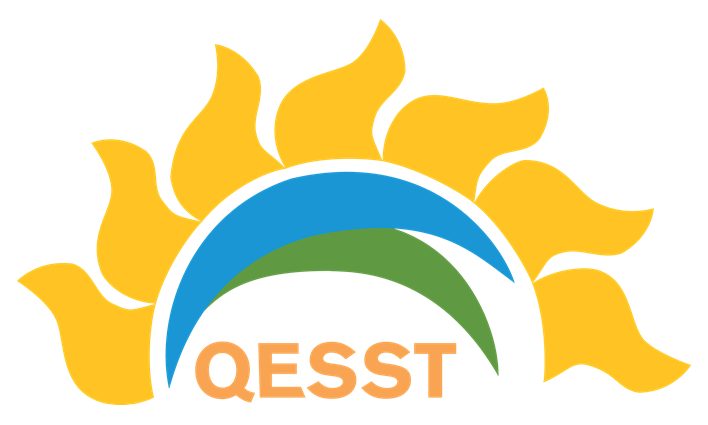QESST Researchers Share Findings on the City-Wide Feasibility of Building-Level Photovoltaic Solutions
Outcome/Accomplishment
Researchers at The Center for Energy & Environmental Policy (CEEP) at the University of Delaware (UD), a partner institution of the National Science Foundation (NSF)-sponsored Quantum Energy and Sustainable Solar Technologies (QESST) Engineering Research Center (ERC), presented cutting-edge research on the technical potential of building-level photovoltaics (PV) at key industry meetings around the world. The team of six graduate students and faculty included African, Asian, and North American researchers.
Impact/Benefits
UD-CEEP's research focused on solar-powered, city-wide evaluation methods that uniquely advance QESST's educational, partnership, and diversity missions. More practically, the work helps gauge the ability of QESST strategy to deliver solar power to traditionally underserved communities.
Explanation/Background
Prior QESST project work at UD-CEEP focused on collaborations with Arizona State University (ASU), Cal Tech, MIT, Georgia Tech, and other partners to achieve a terawatt-scale solar economy. For this task, the UD-CEEP team developed a bottom-up PV diffusion model which evaluates the effectiveness of financial and policy instruments to spur investment in different PV technologies (i.e., thin film, crystalline, CPV, multi-junction). The model is able to assess the diffusion paths of PV technologies under different end-use segments (including residential, commercial, and utility-scale installations).
During the Spring and Summer of 2019, the UD-CEEP research team examined a large-scale solar development for Philadelphia, PA (a majority minority city) and for Tempe, AZ (whose population is 30% minority). Research outcomes were presented at the QESST site visit in 2019; the 2019 International Renewable Energy Conference (IREC) in Seoul, Korea; and at the Third Asian Energy Studies Conference in Hong Kong, also in 2019.
Location
Tempe, Arizonawebsite
Start Year
Energy and Sustainability
Energy, Sustainability, and Infrastructure
Lead Institution
Core Partners
Fact Sheet
Outcome/Accomplishment
Researchers at The Center for Energy & Environmental Policy (CEEP) at the University of Delaware (UD), a partner institution of the National Science Foundation (NSF)-sponsored Quantum Energy and Sustainable Solar Technologies (QESST) Engineering Research Center (ERC), presented cutting-edge research on the technical potential of building-level photovoltaics (PV) at key industry meetings around the world. The team of six graduate students and faculty included African, Asian, and North American researchers.
Location
Tempe, Arizonawebsite
Start Year
Energy and Sustainability
Energy, Sustainability, and Infrastructure
Lead Institution
Core Partners
Fact Sheet
Impact/benefits
UD-CEEP's research focused on solar-powered, city-wide evaluation methods that uniquely advance QESST's educational, partnership, and diversity missions. More practically, the work helps gauge the ability of QESST strategy to deliver solar power to traditionally underserved communities.
Explanation/Background
Prior QESST project work at UD-CEEP focused on collaborations with Arizona State University (ASU), Cal Tech, MIT, Georgia Tech, and other partners to achieve a terawatt-scale solar economy. For this task, the UD-CEEP team developed a bottom-up PV diffusion model which evaluates the effectiveness of financial and policy instruments to spur investment in different PV technologies (i.e., thin film, crystalline, CPV, multi-junction). The model is able to assess the diffusion paths of PV technologies under different end-use segments (including residential, commercial, and utility-scale installations).
During the Spring and Summer of 2019, the UD-CEEP research team examined a large-scale solar development for Philadelphia, PA (a majority minority city) and for Tempe, AZ (whose population is 30% minority). Research outcomes were presented at the QESST site visit in 2019; the 2019 International Renewable Energy Conference (IREC) in Seoul, Korea; and at the Third Asian Energy Studies Conference in Hong Kong, also in 2019.

